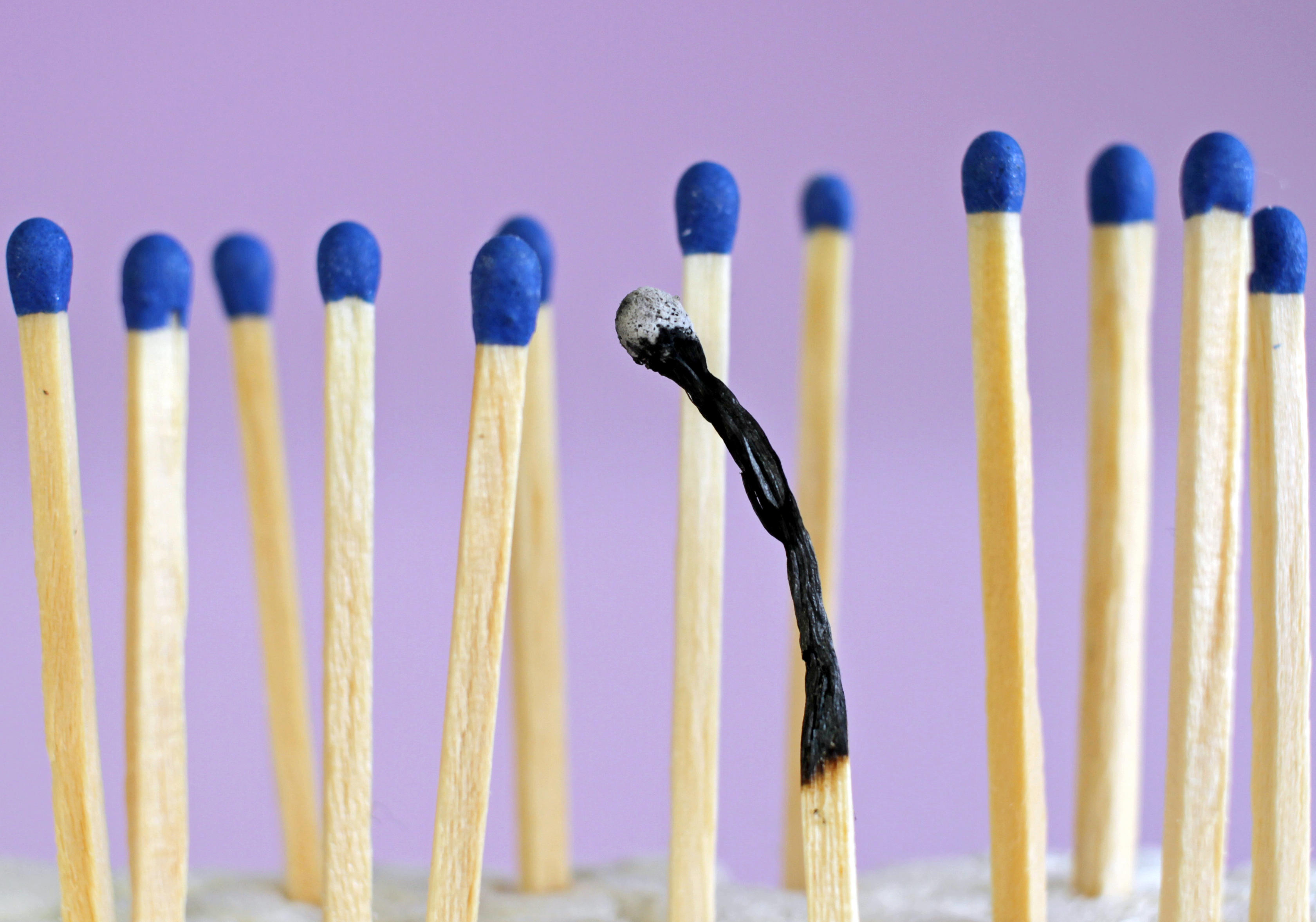The Duke of Sussex has admitted he has “experienced burnout”.
In a live stream with Serena Williams for the health company BetterUp, Harry said he was “literally getting to the very end of everything that I had, any fuel or any steam in the engine, just like I was burning the candle at both ends”.
The 37-year-old continued: “And it was like boom, that is when you are forced to look inside yourself because with everything else around you seemingly, you feel as though it’s working against you, the only way that you could really combat it and the only way you can build resilience for the outside world and your entire environment is the inner work.”
Harry stressed the importance of self-care, while also saying it’s “the first thing that drops away. I’m happy to admit that as a husband, as a dad.”
You might experience burnout both physically and mentally after a period of prolonged stress and pressure.
It’s something we’re increasingly talking about, particularly as the pandemic has blurred the lines between work and home, made parenting seem like an uphill battle, and brought on a feeling of general relentlessness.
While everyone experiences burnout differently, there are some general symptoms we’re all aware of – such as tiredness or reduced productivity. But what about some of the more unexpected signs?
1. Bouts of anger

Psychotherapist Caroline Plumer (cppclondon.com) mentions the “huge emotional toll that comes along with burnout”, which is why she says: “Anger makes complete sense to me, also generally being irritable with people or feeling quite depressed and upset and tearful a lot of time.”
Plumer describes how the body can be flooded with cortisol if you’re stressed for a long period of time, suggesting this “can lead to the risk of you experiencing depression and more mental health complications” – and this might manifest itself in angry outbursts, even if you’re normally quite level-headed.
2. Pessimism
Burnout could trigger a shift in your worldview to be a bit more pessimistic.
Plumer says her burnt-out clients tend to report “they’re not getting the same joy from things that they used to”.
She continues: “If you become very stressed, very burnt out – going out with friends, you might have loved that before, and suddenly you’re finding you don’t have the energy for it. And if you go, you’re not present, you don’t have the same enjoyment for it.”
3. Weight gain

While there is absolutely no shame in gaining weight, and potential fluctuations might be due to a myriad of other reasons (always see your doctor if you have any concerns), there are a few reasons why it could be a sign of burnout.
“You end up being very low energy when you’re burnt out, so it makes sense your body would crave carbohydrates because it wants to fuel itself,” explains Plumer – and eating more carbs than normal might lead to weight gain.
There’s also a more emotional side to it. If you’re stressed, Plumer can understand “wanting to eat things that make you feel soothed and make you feel better in the short-term – although most of us know that in the long-term, consistently eating that way is actually going to make us feel worse and more sluggish”.
Feelings of lethargy often associated with burnout might make it “harder not only to exercise but just to go outside and do the things you do normally,” explains Plumer.
“Just by virtue of the fact you’re lacking energy and burnt out, you’re becoming more and more sedentary.”
She also suggests it can become something of a vicious cycle: “The more you lean towards depression, the more you’re likely to feel like you’re not deserving of being taken care of, so you stop taking care.”
4. Physical aches and pains

We tend to focus on the mental manifestations of burnout, but did you know it could impact you physically as well? While Plumer stresses it’s important to check with your GP if you experience any new physical symptoms, muscle aches could signal burnout.
“Sore muscles because you’ve been tense are really common,” she explains, as is “people grinding their teeth and locking their jaw – particularly in their sleep, and then waking up with a lot of jaw pain.”
This muscle tension, along with the stress you might be experiencing, could lead to headaches and migraines. Plumer also mentions “an upset stomach because you’re stressed – the gut is very sensitive, so you can also end up constipated”.
Plumer admits “we are generally bad in our society and our culture at paying attention to what our body and emotions are trying to tell us”, but she urges you to not let some of these symptoms go unchecked for too long.
“Your body is going to give you signs you need to do something about it, and if you don’t listen, the worse it gets.”





